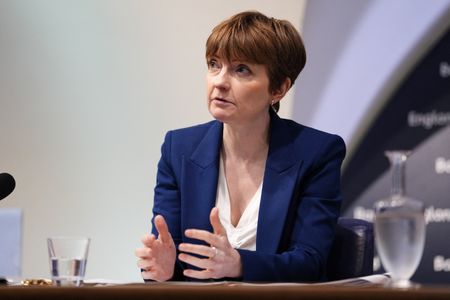HELSINKI (Reuters) -Central bankers need to be careful about assuming inflation shocks are temporary and not caused by longer-term structural pressures, Bank of England Deputy Governor Clare Lombardelli said on Tuesday.
Lombardelli said at a conference hosted by Finland’s central bank that in the past, central banks had tended not to react to rises in inflation that they judged would be temporary, due to the time lags before rises in interest rates took effect.
But experience since the COVID-19 pandemic suggested the public’s longer-term inflation expectations were sensitive to short-term rises in food prices, and that some increases could be part of a longer-term pattern of upward shocks, she said.
“For a lot of countries, a lot of commodities, food prices are quite high. Now that’s very different if that is because it is a one-off weather event that we don’t expect to be continued, or if it is a result of a climate change or something else, which is a structural change,” she said.
“You have to think … what if it is something which is temporary, but the effects might be more persistent?”
Lombardelli voted against the BoE’s most recent interest rate cut in August and earlier this month she said she viewed current interest rates of 4% as being close to their neutral level, limiting the scope for further cuts.
The BoE’s Monetary Policy Committee is also divided about the extent to which there have been structural shifts in Britain’s labour market since the pandemic that could lead to higher inflation.
(Reporting by Anne Karaunen, writing by David Milliken and Suban Abdulla in London; Editing by Sarah Young)











